Fall Of Another Year (I)
Posted Nov 08, 2019
Tags: travel, fall, turkey
I had an eventful Fall in 2019 and have decided that it needs to be documented. This little series of blog posts will go over the various things I did in the last few months, and perhaps talk about how I feel now.
For my birthday this year, I decided against doing the usual — which was inviting all my friends to yet another bar where I would hang out with them until moderately drunk and then spend the following day hungover. Organizing an event was the last thing I wanted to concern myself with. It also severely affected my ability to gather my bearings, or ruminate on how I want to be spending the following year. Instead, I chose to spend a week by myself in Turkey, and a couple of days in Georgia.
In many ways, preparing for this trip was as much of an intense experience as the trip itself. I spent weeks researching on the legal intricacies, and was happy to find out that a unique combination of my citizenship and immigrant status actually made things simple. By the time the trip arrived, I had also lurked on Turkish websites for long enough to start noticing redundancies and patterns— resulting in me being fluent in some of the more rudimentary phrases. “bir tane yeşil çai daha” was particularly helpful, in retrospect.
Traveling alone is often touted as a rewarding experience but I’m not sure how much I agree with that. There were definitely parts of it I enjoyed, and a lot of it had to do with the absence of inertia — I could make and destroy plans in no time, or decide to take random walks without affecting anyone else’s day. On the other hand, I spent entire days talking to no one at all, which led to a strange feeling of disconnection. It felt like all my metaphors for loneliness had suddenly come to life.
For a city that straddles two continents, Istanbul is as intriguing as it sounds. Turkey’s current political situation notwithstanding, the city feels like a fully bloomed flower where each layer reveals artifacts from different eras in time — the world’s first underground train line, the erstwhile terminus for the Orient express and centuries-old marketplaces all coexisting alongside the newer European style apartment buildings, freeway tunnels and cafes playing European synth-pop.
Besides having a seamlessly connected public transit system that included trains, streetcars, and boats, Istanbul is also a very walkable city. It was interesting to note the distinct shift in the way people inhabited public plazas on the Asian and European sides of the city — the former involving a lot of street vendors, while the latter leaving spaces open besides the occasional outdoor seating from nearby restaurants.
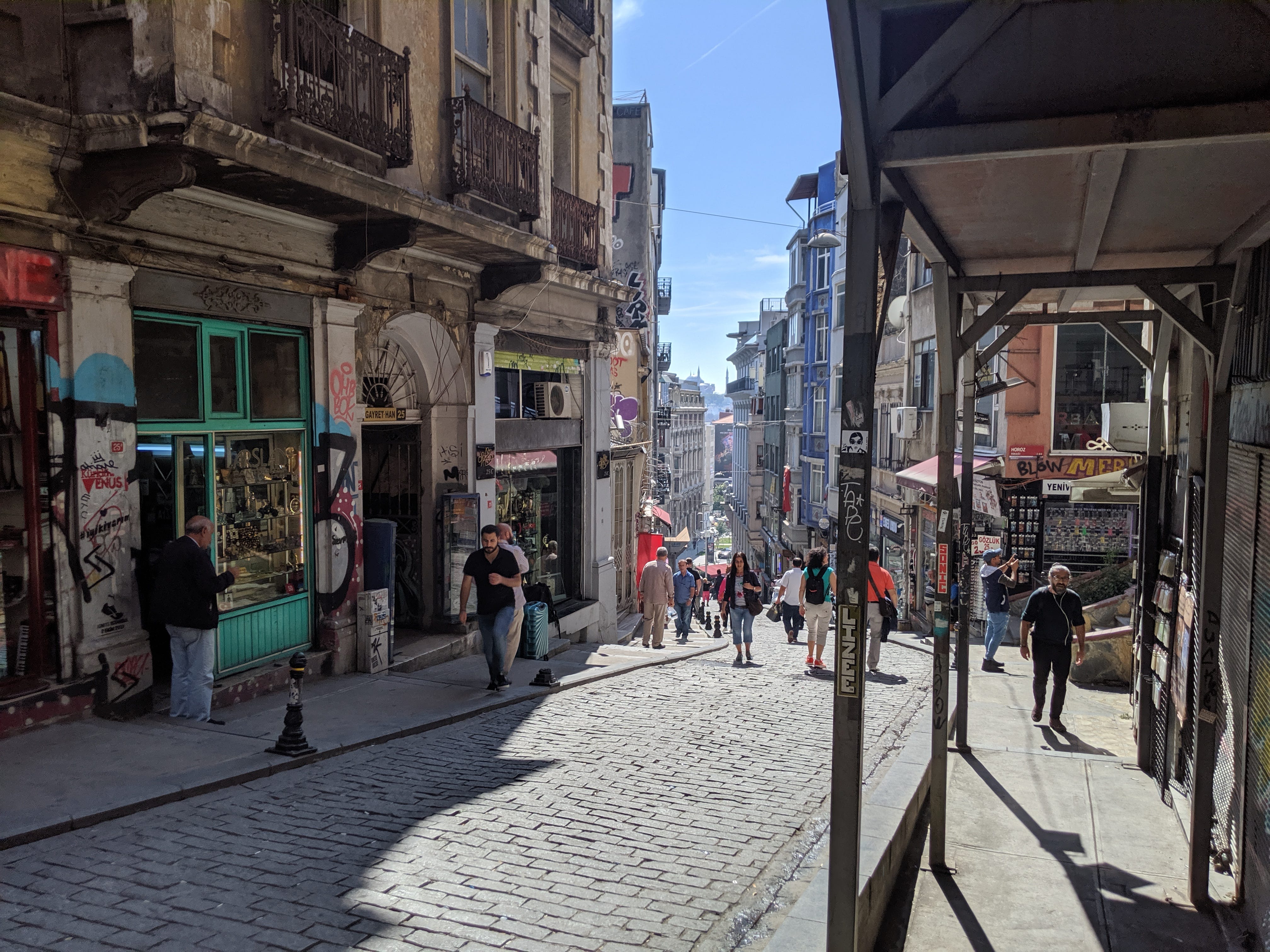
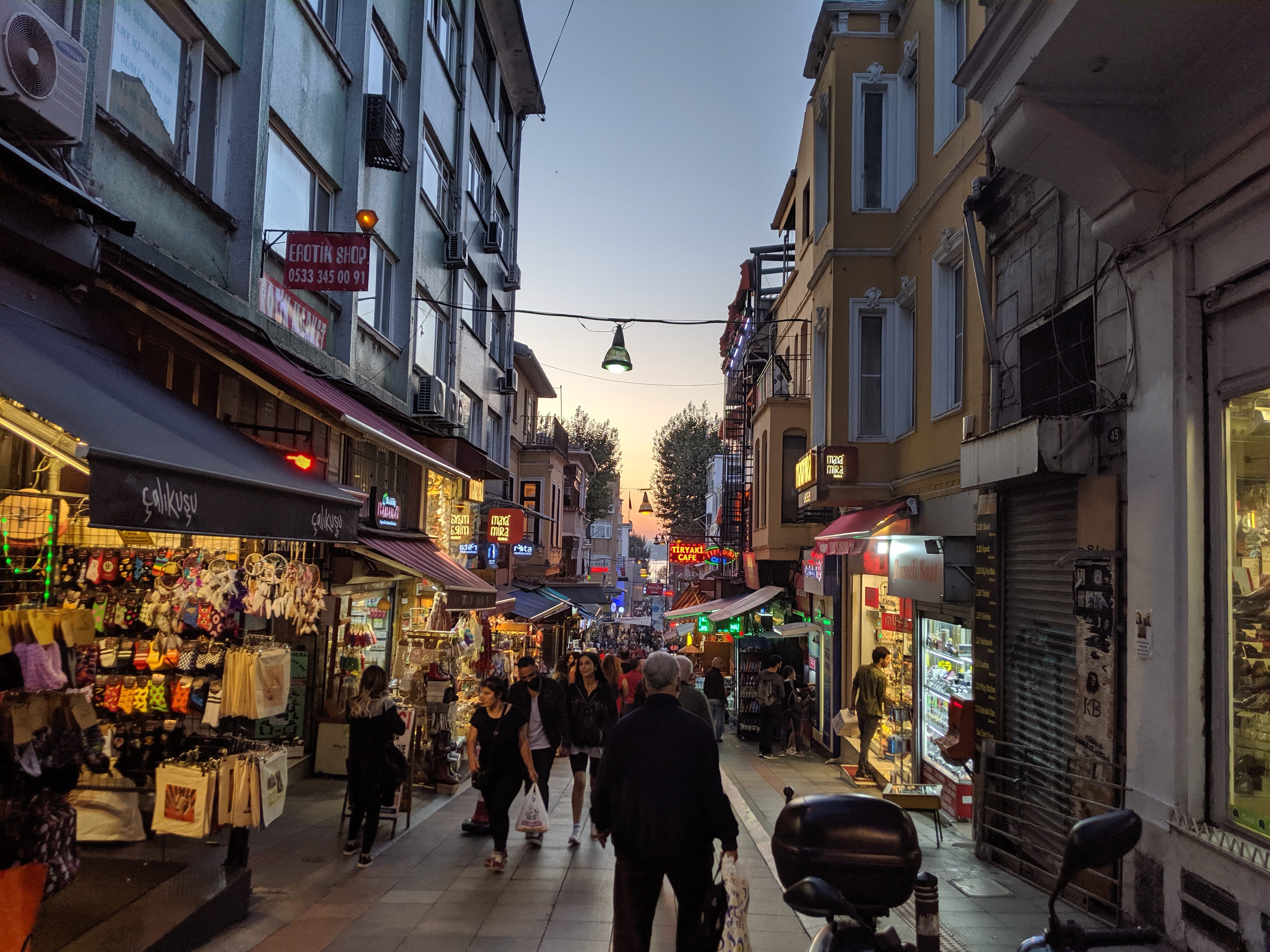
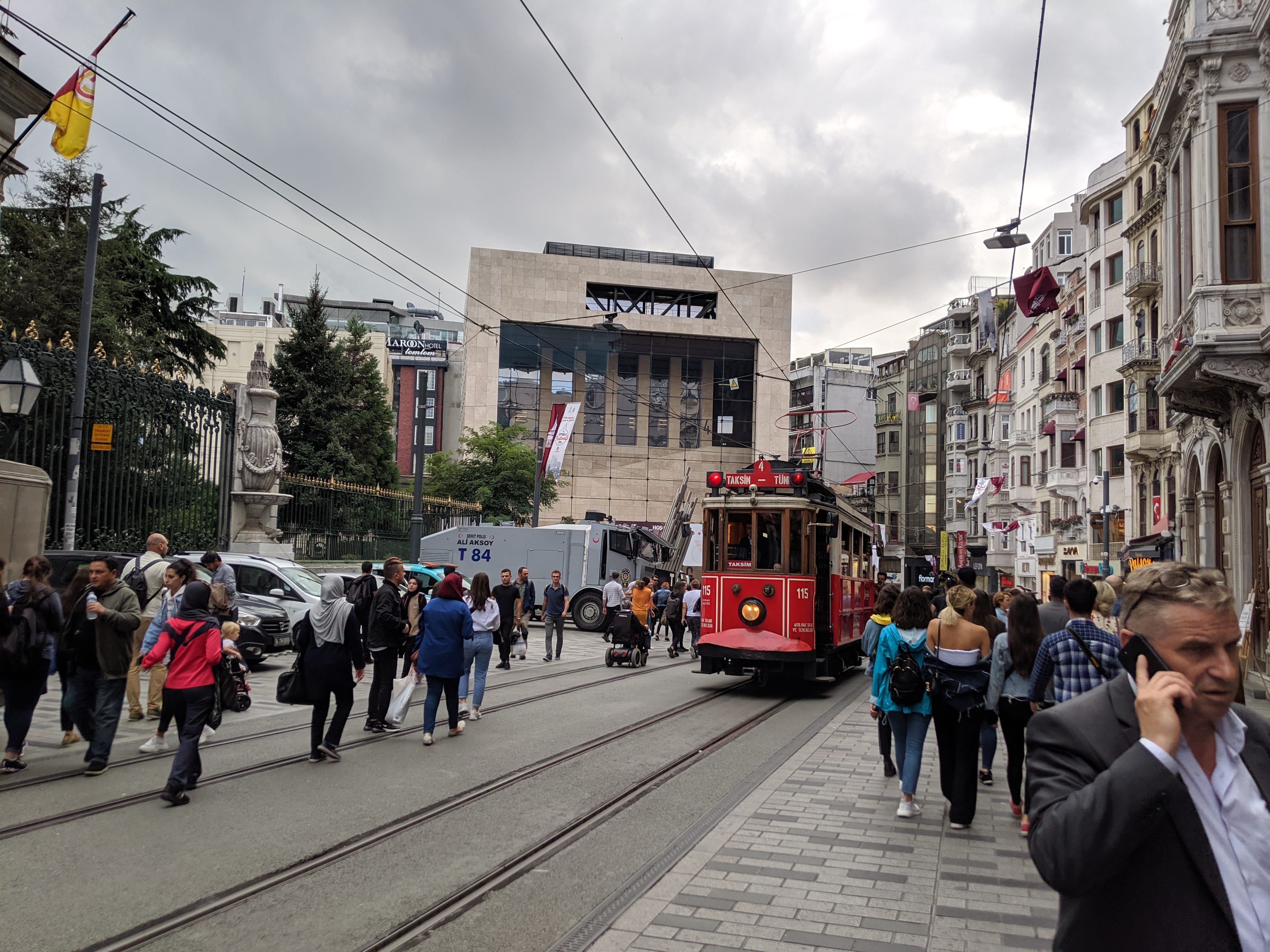
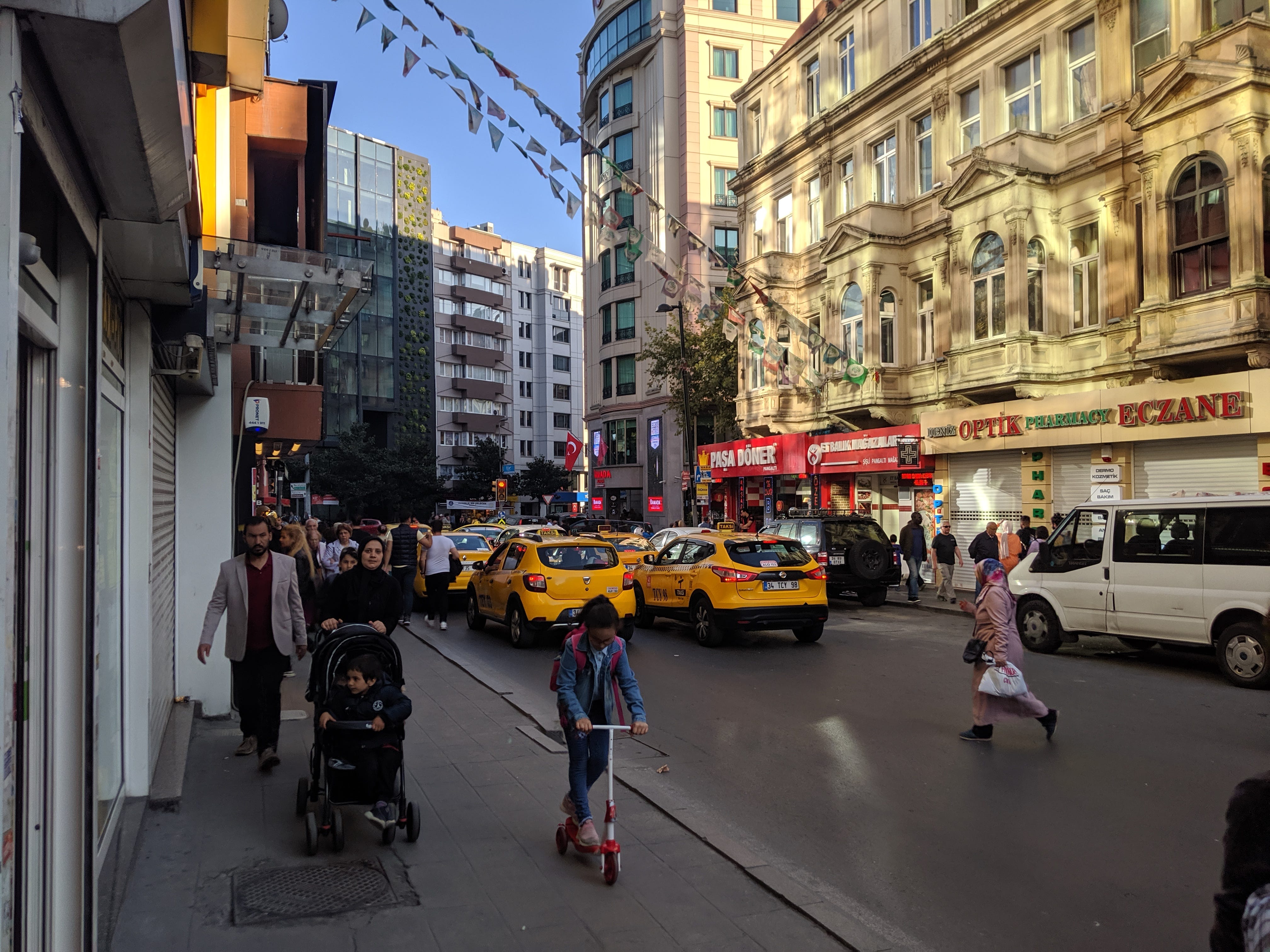
It was easy for me to fall into a routine in Istanbul. But with this also came my other big city habits — I woke up early, followed a schedule of çai+menemen for breakfast, picked a part of the city to explore, and steadily got through my list of places/activities. Often this also involved camping out for hours in some cafe in Kadıköy as I listened to revisions of tracks from my mastering engineer i.e., not quite vacationing anymore.
I spent a lot less time in Tbilisi, but it ended up being a more potent part of my vacation. I arrived in Georgia physically, mentally and emotionally drained, and with nothing to look forward to — which resulted from a particularly long preceding day involving tremors from a nearby earthquake, panic over a momentarily defunct phone, an all-nighter in the airport, and a massive fallout with an old friend right before boarding my flight.
Having walked in with no real plan of how to spend my time, I surprised myself when I ended up chatting with people in the neighboring room. I joined them for dinner, followed by an impromptu walking tour of the city. We also spent the night drinking all the free wine and discussing German radio shows, science fiction, gopniks and global politics.
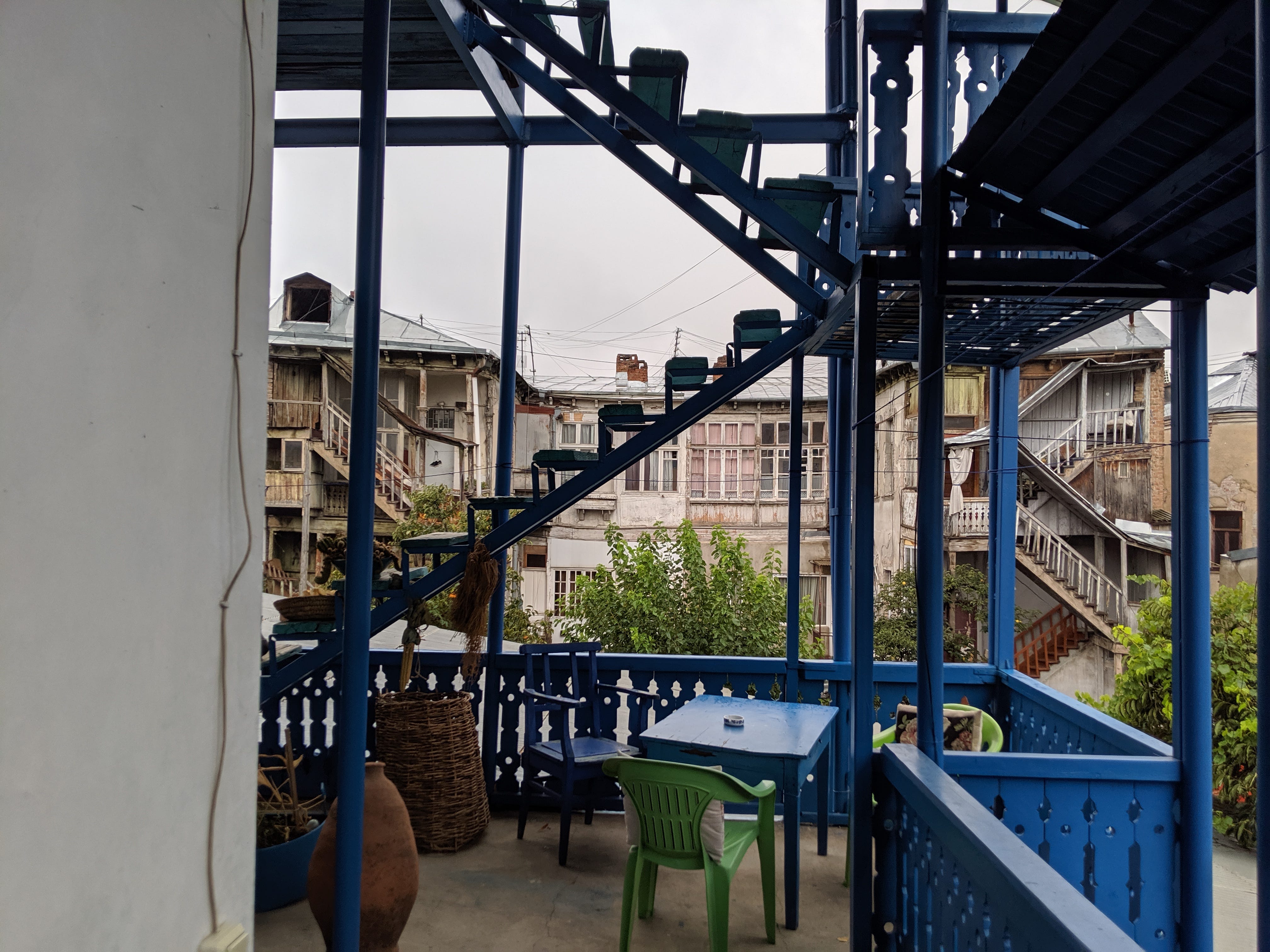
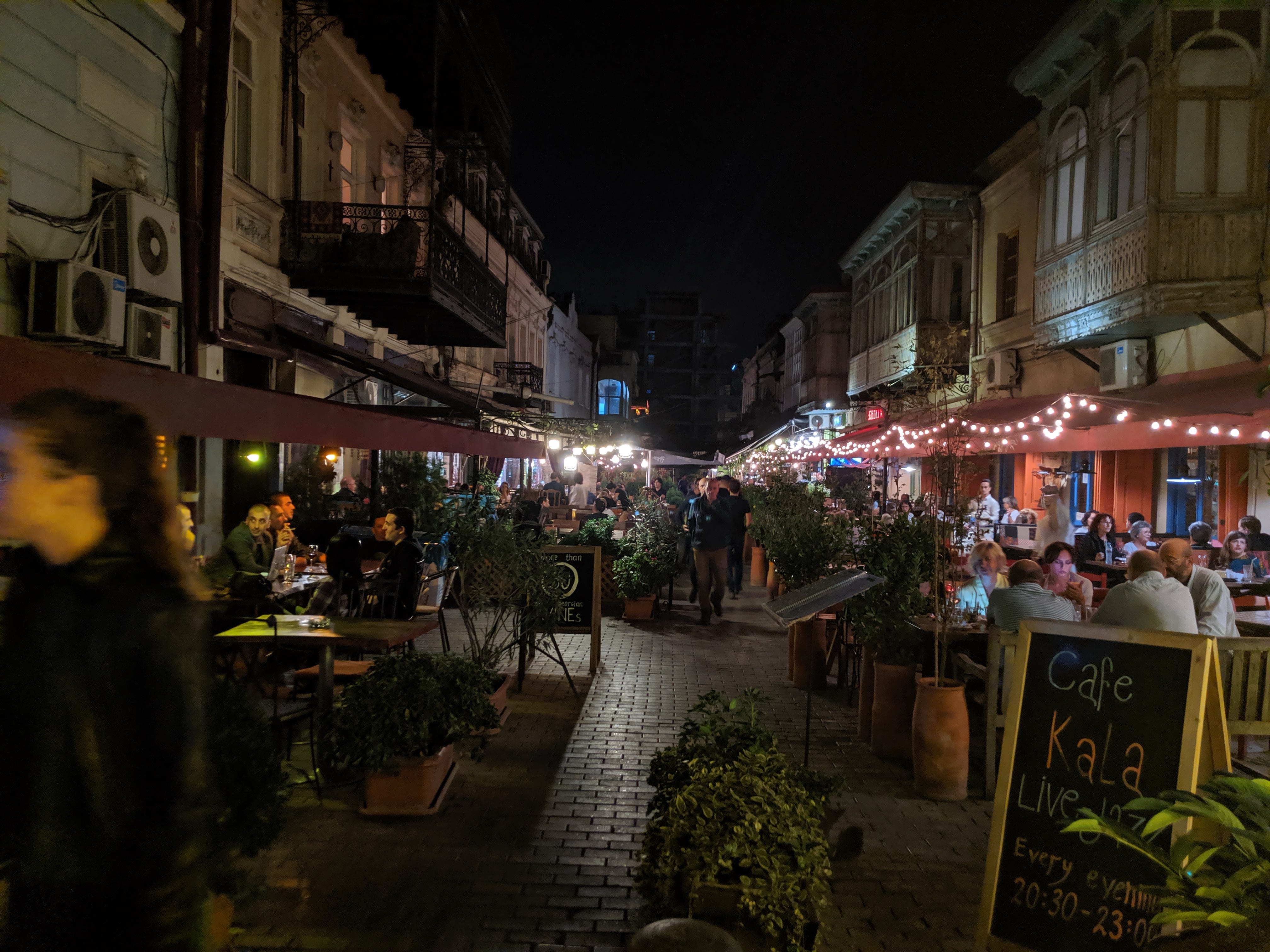
Georgia also won my heart with its idiosyncratic culture that is somehow detached from Soviet Union despite the remnants of its communist past. The youth in Tbilisi came across as very secure with their identities, and acted with a sense of purpose. While Turkish food crept into my life without a sign, Georgian food offered me odd moments of rediscovery as I found out how delicious simple things like raw tomatoes and cucumbers tasted. Georgian cuisine also turned out to be generally vegetarian-friendly.
In many ways, I achieved with this trip what I had hoped to —being able to detach myself from my usual schedules and narratives as well as see for myself that it was possible to live differently. Though the whole thing was supposed to be about my birthday, it ended up being something that I didn’t really celebrate, care for, or even truly acknowledge.
My decision to stay in places where I shared space with the host turned out to be extremely valuable. Meeting people in both countries also reassured me of honest cultures lurking in the negative space between all the capitalist small talk and transactional relationships that I usually find myself amidst. The trip is also a testimony to the age we live in, with easy access to information and bureaucracies everywhere, as well as the (problematically) affordable air travel.
I would love to visit both of these places again. Istanbul, because it seems like a city that needed to be lived in to be fully understood, and Tbilisi, because it comes across as a magical alternate universe that begs to be explored and internalized.